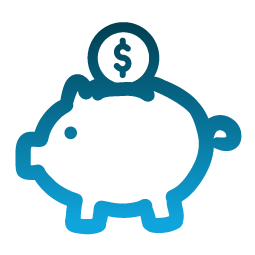Tax Saving Strategies
Tax season can be daunting, but with the right strategies, you can minimize your tax burden and keep more of your hard-earned money in your pockets. Whether you’re a seasoned investor or a newcomer in the world of taxes, hopefully these tips can help you out.

Contribute to Retirement Accounts
One of the most powerful tax-saving tools available is contributing to retirement accounts such as 401(k)’s, IRA’s, or Roth IRA’s. Not only do these contributions reduce your taxable income for the year, but they also allow your investments to grow tax-deferred or tax-free, depending on the account type.
Take Advantage of Tax Credits
Tax credits directly reduce the amount of tax you owe, making them highly valuable. Look for credits such as the Earned Income Tax Credit (EITC), Child Tax Credit, or education-related credits like the American Opportunity Tax Credit (AOTC). These credits can result in substantial savings if you qualify.
Itemize Deductions
While taking the standard deduction is simple, it might not always be the best option for maximizing your tax savings. Consider itemizing deductions if you have significant expenses such as mortgage interest, property taxes, charitable donations, or unreimbursed medical expenses. Be sure to keep detailed records to support your deductions.
Utilizing HSAs and FSAs
An HSA (Health Savings Accounts) and FSA (Flexible Spending Accounts), allows you to set aside pre-tax dollars for qualified medical expenses. HSA’s in particular, offer a triple tax advantage: contributions are tax-deductible, earnings grow tax-free, and withdrawals for qualified medical expenses are tax-free. FSA’s operate similarly but may have different rules regarding rollovers and eligibility.
Harvest Investment Loses
If your investments have lost value, consider selling them to realize those losses. This might seem backwards but capital losses can be used to offset capital gains, reducing your overall tax liability. You can deduct up to $3,000 in capital losses against ordinary income each year, with excess losses carrying over to future years.
Explore Tax-Advantaged Investments
Certain investments offer tax advantages that can boost your after-tax returns. Municipal bonds, for example, provide income with interest that is often exempt from federal and state taxes. Qualified dividends and long-term capital gains are taxed at lower rates than ordinary income, so investing in these types of assets can be beneficial.
Stay Informed and Seek Professional Advice
Tax laws are constantly changing, so staying informed about current regulations and other potential tax-saving opportunities is crucial. Consider consulting with a qualified tax professional who can help you navigate complex tax issues and identify personalized strategies to optimize your tax situation.
Implementing these tax-saving strategies can help you keep more of your money and achieve your financial goals faster. Remember, every dollar saved in taxes can be reinvested in your life.
Don't forget, Nymeo members receive discounts on TurboTax and H&R Block. Learn more here.
Category: Credit & Budgeting



